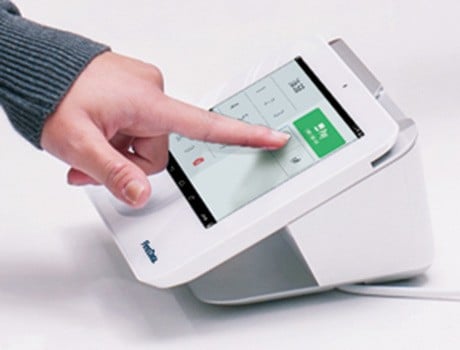Noteworthy changes going into effect during April and May 2023 are summarized below.

New Fees From Visa
New CVV2 Fee – US
April 1, Visa introduced a $0.0025 fee for every CVV2 Match (M) or No Match (N) result. The fee will not apply to 3-D Secure verification, zero-dollar account inquiry (aka account verification), returned values that are not M or N, or verification results that are not received due to an error. This new fee will impact merchants who take card-not-present transactions in particular as they typically use CVV2 in their transactions.
New Digital Account Updater Fee – US and Canada
Starting July 1, 2023 (date UPDATED from previous target of May 1), in the US Visa is expected to charge a Digital Credential Updater Fee (VDCU) of $0.12 that will be billed when a Visa token is used in a transaction for the first time following an update to the token’s primary account number or expiration date. In Canada, a similar fee will go into effect (also on) July 1, 2023.
New Estimated & Incremental Authorization Fees- US and Canada
On April 15, Visa began to allow the use of estimated authorizations and incremental authorizations by all merchants for purchase transactions (some transaction types are excluded). Previously use of these authorizations was only available to some merchant categories, such as restaurants. The Estimated Authorization Request allows a merchant to obtain approval before the final transaction amount has been determined, and the Incremental Authorization Request allows the merchant to increase the total authorized funds if the initial estimated amount is insufficient. A fee of 0.02% will be charged per request.
New Magnetic Stripe Data Contactless Fee – US
For a number of years, the card brands have been discouraging the use of Magnetic Stripe Data (MSD) contactless transactions as EMV chip based contactless payments are more secure and are considered best practice industry-wide. Effective April 1, Visa began assessing a $0.10 Magnetic Stripe Data (MSD) Contactless Fee for sales and refund transactions with POS Entry Mode 91 (account number entry via contactless magnetic stripe). The fee went into effect for all merchant category codes (MCCs) except 5541 (service station) and 5542 (automated fuel dispensers) for which the fee will go in effect January 1, 2024.
New/Updated Rules from Visa
Expanded Use of Estimated/Incremental Authorizations – US, Canada, AP, CEMEA, EU, LAC
Effective April 15, Visa expanded its authorization framework to allow merchants to use estimated and incremental authorizations for purchases where the final transaction amount is not known up front. Certain transaction types will be excluded, including account funding transactions (including cryptocurrency purchases), advance payment transactions, ATM cash disbursement transactions, installment transactions, manual and quasi-cash transactions and recurring payment transactions. Fees may apply. For more information on the expanded authorization framework, merchants should contact their acquirers.
Updated Surcharging Rules – US
Effective April 15, Visa modified surcharging rules. Going forward, the maximum surcharge a merchant can add when a customer uses a Visa credit card has been reduced from 4% to 3%. This means the amount of the surcharge cannot exceed the interchange rate specific to the Visa credit card being used or 3%, whichever is lowest. (The one exception is Colorado where the surcharge maximum is 2% per state law). Adding surcharges to transactions paid via debit and prepaid cards remains prohibited per the Durbin Act.
Additionally, as of April 15, a merchant that plans to surcharge is required to notify their acquirer at least 30 days prior to commencing surcharging. They must also include the surcharge amount within a dedicated data field (labelled Field 28) in the transaction message sent to Visa (the acquirer will enable the population of this field).
Visa says it is actively enforcing its surcharge policy. In addition to investigating consumer complaints, noncompliance is detected via mystery shopping by outside auditors. Merchants and acquirers that fail to comply with the rules are subject to fines. For more information see Merchant Surcharge Q&A from Visa.
New Dispute Rules from Visa – Global, excluding Brazil
Effective April 15, in addition to allowing device id to be used as compelling evidence to dispute fraud in card-not-present environments, Visa made modifications to dispute rules for cancelled recurring transactions to ensure the rule is properly applied to situations where cardholders cancel a payment method. A summary of the key changes are as follows:
Dispute Condition 10.4: Other Fraud—Card-Absent Environment:
A merchant can remedy the dispute by providing evidence of all of the following:
- Merchandise or services were provided – only photographic or email evidence will be accepted
- The same payment credential was used in two previous transactions (processed more than 120 days before the dispute) that the issuer did not report as fraudulent activity to Visa
- The device ID, device fingerprint or the IP address and an additional one or more of the following in both of the undisputed transactions are the same as the disputed transaction: Customer account/login ID, Delivery address, Device ID/device fingerprint, IP address
Dispute Condition 13.2: Cancelled Recurring Transaction:
According to Visa, this dispute condition was increasingly being improperly applied to situations where cardholders cancel a merchant’s services instead of situations when a cardholder has cancelled the payment method. To help ensure that the dispute condition is properly applied, effective April 15, the issuer must provide certifications to support that the cardholder withdrew permission to charge the payment credential including:
- The date the cardholder withdrew permission
- Details used to contact the merchant, such as an email address, telephone number or physical address
- Details of the other form of payment provided to the merchant
Download Visa’s Dispute Rule Updates for more details.
New Requirements for Standalone Tipping from Visa – Global
Visa has clarified transaction data and processing requirements for stand-alone tipping which is defined as a gratuity paid separately from the purchase of primary goods or services. Requirements for tips bundled with and incremental to goods and services, such as a tip added to a restaurant bill, remain unchanged. Key details regarding stand-alone tipping are as follows:
- The tipee or the tipee’s employer must be the merchant
- Merchant Category Code 7299—Miscellaneous Personal Services (Not Elsewhere Classified) should be used
- A tip must be classified as a purchase
- Effective April 16, to help cardholders recognize the transaction thus avoiding unnecessary disputes, Visa started requiring that the merchant name field in a stand-alone tipping transaction must also contain the word “tip.” For example, “Tip Midtown Tennis Club” would be used as for a standalone tip paid to a parking valet at a club called “Midtown Tennis Club”
For more details see this Transaction Data Requirements for Standalone Tipping.
Network Access and Brand Usage Fee Expansion – US
On April 10, 2023, Mastercard began charging the Network Access and Brand Usage (NABU) fee of $0.0195 for all authorization response codes. Previously the charge only applied to some authorization response codes. The amount of the fee is unchanged.
There are no noteworthy rate or rule changes that are going into effect in April 2023.

Updated Interchange Rates – US
On April 14, Discover updated interchange rates for consumer debit, consumer credit and consumer prepaid cards as shown below:
New Rates for Consumer Credit Cards
- Prime Submission Level Restaurants Premium Plus – 2.45% + $0.10 (old rate 2.40% + $0.10)
- Prime Submission Level Restaurants Rewards – 1.90% + $0.10 (previously 1.95% + $0.10)
- Prime Submission Level Supermarket/Warehouse Clubs Premium – 1.65% + $0.10 (old rate 1.60% + $0.10)
- Prime Submission Level Supermarket/Warehouse Premium Plus – 2.10% + $0.10 (old rate 1.90% + $0.10)
- Prime Submission Level Petroleum Core – 1.80% + $0.05 (old rate 1.55% + $0.05)
- Prime Submission Level Retail Premium Plus – 2.25% + $0.10 (old rate 2.17% + $0.10)
- Premium Submission Level Card Not Present Premium Plus – 2.55% + $0.10 (old rate 2.50% + $0.10)
- Prime Submission Level Ecommerce Premium Plus – 2.55% + $0.10 (old rate 2.50% + $0.10)
- Prime Submission Level Ecommerce Secured Premium Plus – 2.40% + $0.10 (old rate 2.35% + $0.10)
- Key Entry Submission Level Premium Plus – 2.55% + $0.10 (previously 2.50% + $0.10)
New Rates for Commercial Prepaid Cards and Consumer Debit
- Commercial Large Ticket Prepaid – 1.45% + $35 (old rate 0.90% + $20)
- Prime Submission Level Restaurants – Debit – 1.19% + $0.10 (old rate 1.14% + $0.15)
Revised Program Integrity Fee – US
On April 14, Discover increased the Program Integrity Fee from $0.05 to $0.10. This fee is assessed on transactions that are downgraded to, or that qualify for US Consumer or Commercial Base Submission level.
If your business is seeking cost-reduction projects, we’re here to help. We fix and monitor your existing merchant account, and we bring that money back to you. No need to change processors or add a project to your team’s already hectic workload. Schedule a consultation today.
Verisave is a third-party cost-reduction firm specializing in merchant accounts and credit card processing fees.
Verisave is not a payment processor, and is not affiliated with any processors, card brands, or banks.
Verisave has more than 20 years of experience optimizing and monitoring the credit card processing industry.
